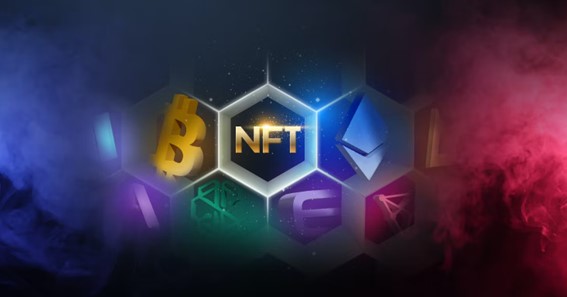NFT trading has become a popular activity in Germany in recent years. This is because NFTs offer a number of advantages over traditional assets, including the ability to trade them 24/7, the lack of counterparty risk, and the fact that they can be stored securely on the blockchain. You can also explore NFT code for further information.
In addition, NFTs offer German investors exposure to a new asset class that is not correlated with other asset classes such as stocks and bonds. This diversification can help to reduce overall portfolio risk.
The rise in popularity of NFT trading has also been fueled by the introduction of several innovative platforms that make it easy for investors to buy, sell, and trade NFTs. These platforms include OpenSea, Rarible, and mintable.
So far, the majority of NFT trading activity in Germany has been focused on digital art and collectibles. However, there is also a growing market for NFTs that represent physical assets such as real estate and cars.
The growth of the NFT market in Germany is expected to continue in the coming years as more investors become aware of the benefits of this new asset class.
The rise of non-fungible tokens has been a game-changer for the digital economy. NFTs have given birth to a new era of digital collectibles that are quickly becoming popular among investors and collectors. Germany is no stranger to this trend, as the country has seen a significant increase in NFT trading activity in recent months.
So far, Germany’s economy has largely benefited from the growth of the NFT market. The country’s digital collectibles industry is now worth an estimated €1 billion, and it continues to grow at a rapid pace. This has created jobs and generated revenue for businesses across the country.
Looking ahead, it is likely that NFTs will continue to play a major role in Germany’s economy. The country is home to a number of world-class digital collectibles businesses, and it is well-positioned to capitalize on the continued growth of the NFT market.
As the world’s fourth-largest economy, Germany is an important player in global trade. NFT trading plays a significant role in the country’s economy, with a large percentage of its GDP coming from exports. NFTs are used to trade a variety of goods and services, including manufactured products, raw materials, and agricultural products. Germany is also a major importer of NFTs, with a substantial portion of its GDP coming from imports.
NFT trading is an important part of the German economy because it allows the country to export more than it imports. This surplus in trade helps to boost the German economy and create jobs. NFTs also give Germany an edge in international competition by allowing the country to offer lower prices for its exports.
NFTs are an important part of the German economy, and their role is expected to continue to grow in the future. As the world economy becomes increasingly globalized, NFT trading will become even more important for Germany and other countries that are major players in international trade.
NFTs have been gaining popularity in recent years, and Germany is no exception. NFT trading has become a significant part of the economy, with businesses and individuals alike reaping the benefits.
NFTs offers a number of advantages over traditional assets. For one, they can be easily transferred and traded without the need for intermediaries. This makes them ideal for use in fast-paced industries such as gaming and online advertising.
Another key benefit of NFTs is that they are typically more resilient to fraud than traditional assets. This is because each NFT is unique and stored on a blockchain, making it nearly impossible to duplicate or counterfeit.
Lastly, NFTs offer greater flexibility when it comes to pricing. Unlike stocks or bonds, which are fixed in value, NFTs can be traded for a variety of different prices depending on market demand.
Due to these advantages, NFT trading has become increasingly popular in Germany. Businesses have been quick to adopt the technology, with many now using NFTs to purchase goods and services.
Individual investors have also gotten involved, with some buying NFTs as a way to speculate on the future price movements of the underlying assets.
The role of NFTs in the German economy is only likely to grow in the years ahead. As more businesses and individuals begin to recognize the benefits of this new asset class, we expect to see even more adoption and growth.







